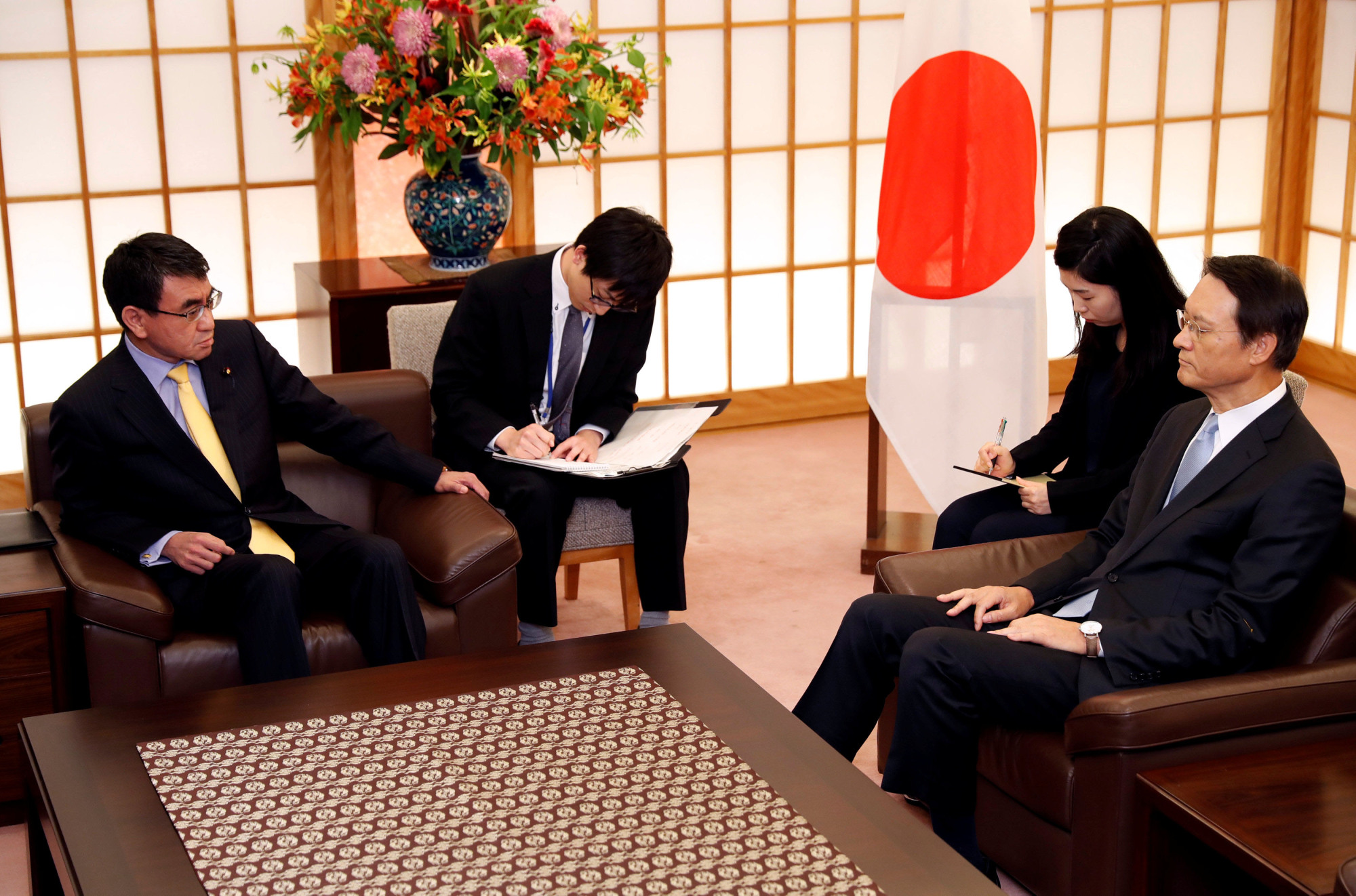South Korea's Supreme Court ruling last week ordering a major Japanese steelmaker to pay damages to South Koreans mobilized to wartime labor under Japan's colonial rule of the Korean Peninsula was easy to predict. Equally predictable is that a deterioration of relations between Japan and South Korea will follow. That future is not ordained, however. If Seoul recognizes the stakes and South Korean President Moon Jae-in prioritizes the future over the past, the national interest over domestic politics, and the national interest above settling scores, then this moment could be a step toward improved ties. But it isn't likely.
That court decision was a long time coming. The case was first filed in a Korean court in 2005, after the plaintiffs lost a similar suit in Japan. South Korea's Supreme Court in 2012 overturned lower court rulings that denied compensation and in a 2013 ruling the Seoul High Court ruled in favor of the plaintiffs. Nippon Steel & Sumitomo Metal Corp. appealed to the Supreme Court the following year and the court took five years to render last week's decision.
In its ruling, the court dismissed the defense's two chief claims: that it was not the same company that had wronged the plaintiffs during World War II (it was reorganized after the war) and that a bilateral agreement that accompanied the 1965 treaty normalizing relations between Japan and South Korea settled all compensation claims deriving from Japan's colonial rule of Korea. Instead, it reasoned that during negotiations for the 1965 agreement, "the Japanese government failed to acknowledge the illegality of its colonial rule and rejected in principle legal compensation for victims of forced labor." As a result, the court concluded that the victims' rights to individual compensation remained valid and could be enforced.



















With your current subscription plan you can comment on stories. However, before writing your first comment, please create a display name in the Profile section of your subscriber account page.